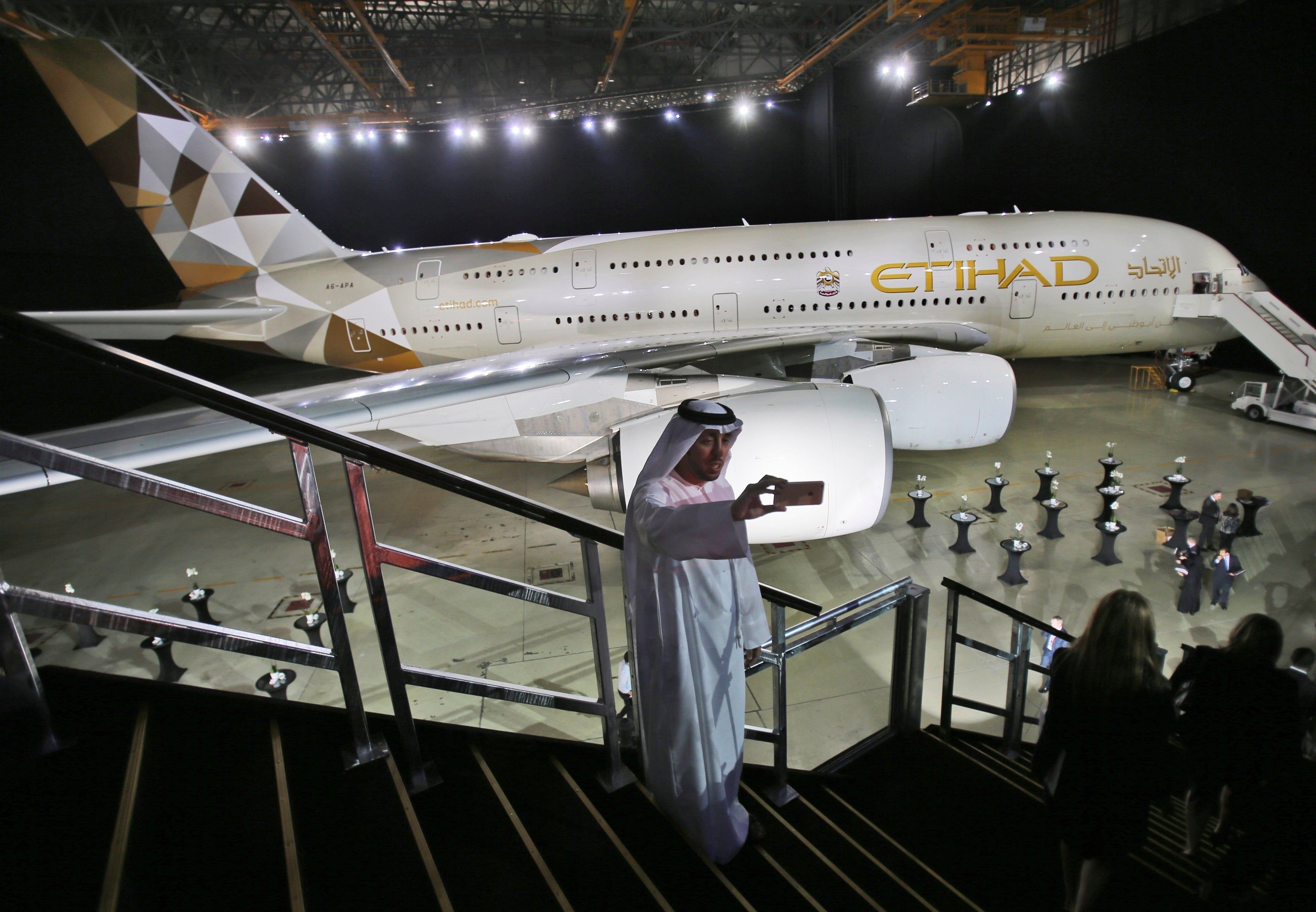Abu Dhabi’s Etihad Airways reports $1.7 billion loss in 2020
Abu Dhabi’s national carrier Etihad has reported core operating losses of $1.7 billion in 2020

Your support helps us to tell the story
From reproductive rights to climate change to Big Tech, The Independent is on the ground when the story is developing. Whether it's investigating the financials of Elon Musk's pro-Trump PAC or producing our latest documentary, 'The A Word', which shines a light on the American women fighting for reproductive rights, we know how important it is to parse out the facts from the messaging.
At such a critical moment in US history, we need reporters on the ground. Your donation allows us to keep sending journalists to speak to both sides of the story.
The Independent is trusted by Americans across the entire political spectrum. And unlike many other quality news outlets, we choose not to lock Americans out of our reporting and analysis with paywalls. We believe quality journalism should be available to everyone, paid for by those who can afford it.
Your support makes all the difference.Abu Dhabi’s national carrier Etihad on Thursday reported core operating losses of $1.7 billion in 2020, reflecting the severe toll of the coronavirus pandemic on the long-troubled airline that has lost billions in recent years.
Etihad reported revenues of $2.7 billion in 2020 compared to $5.6 billion the year before, a precipitous decline it attributed to “drastically fewer people traveling” as the surging pandemic crippled air travel.
But the airline, one of the Middle East’s top carriers, struggled with financial losses long before the pandemic wiped out the global aviation industry. Since 2016, Etihad has lost a total of $5.62 billion as it has aggressively bought up stakes in airlines from Europe to Asia to compete against the region’s other leading airlines, Dubai-based Emirates and Qatar Airways.
With cost-cutting measures, the company was just starting to recover from the economic pain early last year. It announced the sale of 38 aircraft to an investment firm in an attempt to bolster profits, in a deal valued at $1 billion.
Then, the pandemic struck. Last March, the United Arab Emirates halted flights to stem the spread of the virus. Passenger traffic plummeted to just 4.2 million travelers from 17.5 million the year before, the airline said. Total passenger capacity on planes dropped 64%. The carrier lost $758 million over the first half of 2020 alone. The losses rippled across the company, forcing the airline to cut 33% of its workforce and slash salaries by 25-50%.
By comparison, Etihad lost $870 million in 2019. The airline reported losses of $1.28 billion in 2018 and $1.52 billion for 2017.
While rollout of coronavirus vaccines has stoked hopes for a global return to travel, the industry is not expected to see meaningful recovery for months, until vaccines are widely administered.
Still, Etihad CEO Tony Douglas struck an optimistic tone in the earnings announcement.
“While nobody could have predicted how 2020 would unfold,” he said, “Etihad stood firm and is ready to play a key role as the world returns to flying.”
Abu Dhabi’s rulers launched Etihad in 2003, rivaling the established Dubai government-owned carrier Emirates, which boasts a larger fleet and far-flung network. Emirates flies out of Dubai International Airport only 115 kilometers (70 miles) away from the capital of Abu Dhabi The two airlines compete in the long-haul carrier market, using their nation’s location as a key east-west transit point to their advantage.